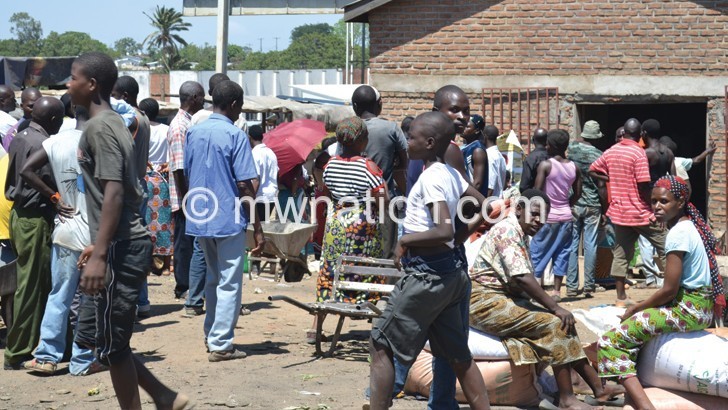Gondwe admits Fisp for votes
Minister of Finance , Economic Planning and Development Goodall Gondwe has admitted that government’s increase of the Farm Input Subsidy Programme (Fisp) allocation is to win votes in the 2019 Tripartite Elections and achieve food security.
In an interview yesterday, Gondwe said there was nothing wrong in seeking votes from the people.

He said: “If it’s a campaign year and we give people more to eat, what is wrong with that? We want both the votes and at the same time after crops were attacked by fall armyworms in the last growing season, we want people to have food and if we don’t give farmers enough fertiliser, there will be less food.”
The minister added that while most stakeholders suggest long-term approaches such as development of irrigation systems, Fisp is addressing food security challenges in the short-term for the underprivileged.
Said Gondwe: “For the long-term they are right, we should channel more funds towards irrigation and resilience.”
He further conceded that government will at some stage need to abolish the programme.
In the proposed 2018/19 National Budget, the Ministry of Agriculture, Irrigation and Water Development has been allocated K151.9 billion, K41.5 billion of which is for Fisp, representing 27.3 percent of the ministry’s total budget allocation.
This is an increase from the 2017/18 revised allocation of K33.2 billion for 900 000 beneficiaries.
This year’s Fisp is also targeting one million beneficiaries.
This has not gone down well with some stakeholders who have been asking government to abolish Fisp and channel the funds towards irrigation development and promotion of medium and large-scale farming.
According to Farmers Union of Malawi (FUM) president Alfred Kapichira Banda, government has increased the Fisp allocation to raise funds for the campaign period.
“Fisp is for government and not us farmers. It is clear that funds from this year’s programme will be used to fund the campaign and not to benefit the farmers. This is why they have increased the number of beneficiaries and the money,” said Kapichira.
According to him, Fisp has not achieved its intended purpose of benefitting smallholder farmers as they still sell crops at low prices.





